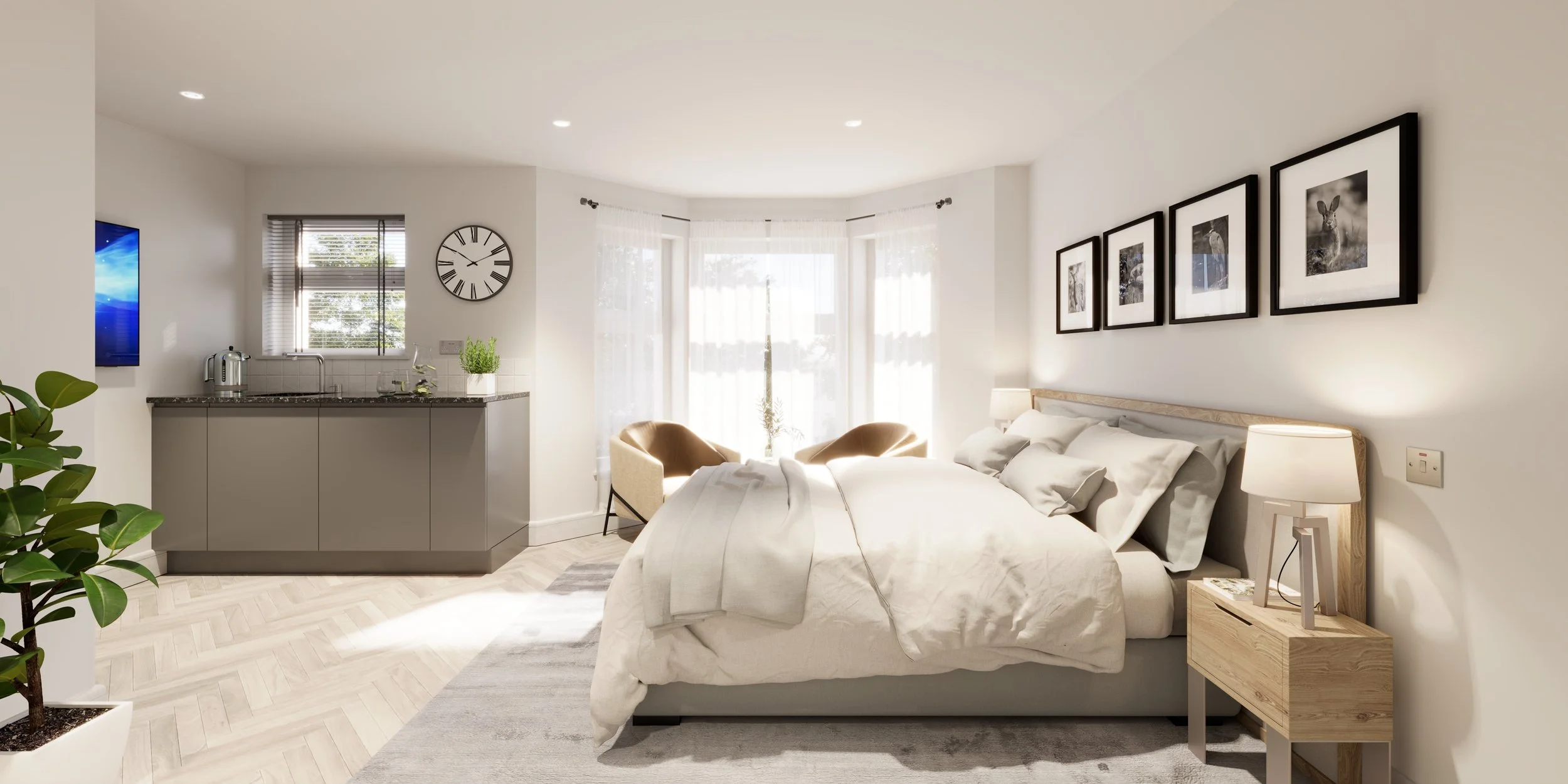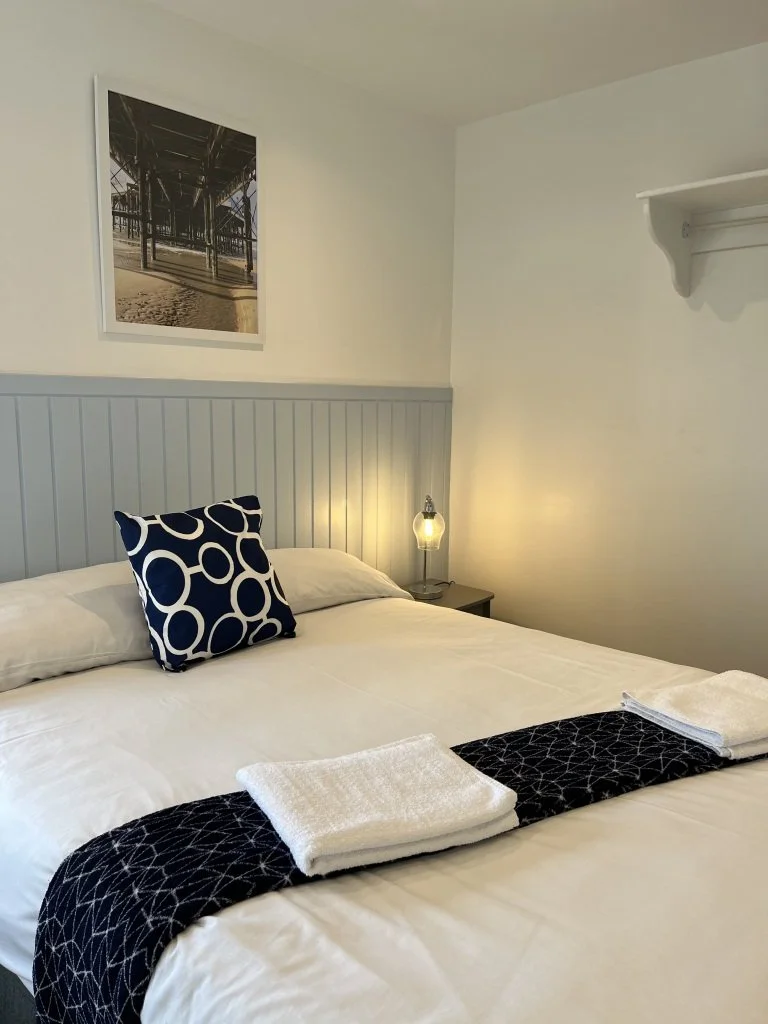A Deep Dive: Hotel Rooms vs. Holiday Apartments
Exploring the Pros and Cons of Investing in Hotel Rooms vs. Holiday Apartments
As the property investment landscape continues to evolve, investors are increasingly exploring alternative asset classes beyond traditional residential properties. Two such options that have gained traction are hotel room investments and holiday apartment investments. Both offer unique advantages and considerations that are worth exploring in depth.
The allure of owning a piece of paradise or a slice of the bustling travel industry is undeniable. But when it comes to property investment, should you focus on hotel rooms or holiday apartments? Both offer unique advantages and disadvantages, and the choice depends on your risk tolerance, investment goals, and desired level of involvement. Let's delve into the nitty-gritty of each option:
Investing in Hotel Rooms: Convenience with Caveats
Pros of Hotel Room Investments:
Passive Income Opportunities: One of the primary benefits of investing in hotel rooms is the potential for a steady stream of passive income. Hotel operators typically provide investors with a guaranteed rental yield, often in the range of 8-10% per annum. This can offer a more reliable and hands-off approach to generating returns compared to traditional buy-to-let properties.
Lower Entry Barriers: Hotel room investments generally have a lower entry point than purchasing entire properties, with prices ranging from £50,000 to over £450,000 for luxury units. This makes them more accessible to a wider pool of investors, especially those with limited capital.
Commercial Property Benefits: Hotel rooms are classified as commercial properties, which can provide certain tax advantages. Investors may be exempt from stamp duty on properties under £150,000 and can potentially utilize self-invested personal pensions (SIPPs) for their investments.
Hassle-Free Management: Hotel room investments typically come with professional management services provided by the hotel operator. This includes tasks such as booking, cleaning, and maintenance, relieving investors of the day-to-day responsibilities associated with traditional rental properties.
Diversification: Owning a hotel room can diversify your portfolio, reducing risk compared to holding only stocks or bonds.
Cons of Hotel Room Investments:
Reliance on Hotel Performance: The success of a hotel room investment is heavily dependent on the overall performance and occupancy rates of the hotel itself. If the hotel experiences a downturn, it can directly impact the investor's rental income and returns.
Higher Operational Costs: While hotel room investments offer a more hands-off approach, the operational costs associated with running a hotel can be higher than those of a traditional rental property. These costs can include management fees, marketing expenses, and other hotel-specific overheads.
Cyclical Industry: Occupancy rates fluctuate with economic conditions and travel trends, affecting income.
Limited Capital Appreciation: Profits primarily come from rental income, with less potential for significant property value growth.
Limited Control and Flexibility: As an investor, you have limited control over the management and operations of the hotel. The hotel operator retains the primary decision-making power, which can restrict your ability to make changes or influence the property's performance.
Potential for Oversaturation: The hotel room investment market has seen increased popularity in recent years, leading to concerns about potential oversaturation in certain locations. This could result in increased competition and reduced rental yields for investors.
Cash-Only Purchases: Securing financing for hotel rooms can be challenging, often requiring full cash purchases.
Investing in Holiday Apartments: More Control, More Work
Pros of Holiday Apartment Investments:
Potential for Higher Rental Yields: Holiday apartments, particularly in popular tourist destinations, can often command higher nightly rates compared to traditional long-term rentals. This can translate into higher rental yields for investors.
Potential for Capital Growth: The property value can appreciate over time, offering a long-term benefit.
Flexibility and Control: As the owner of a holiday apartment, you have more control over the property's management, marketing, and operations. This can allow you to tailor the experience to your target market and potentially optimize rental income.
Wider Financing Options: Traditional mortgages are often available for holiday apartments, making them more accessible to some investors.
Personal Use Opportunities: Many holiday apartment investments offer the option for investors to use the property for their own vacations, providing a dual-purpose asset that can be both an investment and a personal retreat.
Diversification Benefits: Investing in holiday apartments can help diversify an investment portfolio, as the performance of this asset class may be less correlated with traditional residential or commercial real estate.
Tax Advantages: Depending on location, you might qualify for tax benefits on rental income and property depreciation.
Cons of Holiday Apartment Investments:
Seasonal Fluctuations: Holiday apartment rentals are often subject to seasonal fluctuations, with peak seasons and off-peak periods. This can result in uneven cash flow and the need to manage occupancy rates effectively.
Higher Operating Costs: Maintaining and managing a holiday apartment can involve higher costs compared to a long-term rental property. These costs may include cleaning, utilities, marketing, and potential periods of vacancy. Although, using an experienced management company can take away a lot of the burden at a small cost.
Regulatory Considerations: The holiday rental market is subject to various regulations and legal requirements, such as licensing, taxation, and compliance with local laws. Navigating these can add complexity and administrative burdens for investors.
Potential for Increased Competition: As the popularity of holiday rentals continues to grow, investors may face increased competition from other property owners, potentially impacting rental rates and occupancy levels.
When considering investing in hotel rooms or holiday apartments, it's essential to carefully evaluate the specific market conditions, location, and your investment goals. Thorough research, financial analysis, and a clear understanding of the risks and rewards associated with each asset class are crucial to making an informed decision that aligns with your investment strategy.
Consider your goals:
Do you prioritize passive income and convenience, or are you comfortable with a more hands-on approach?
Is capital appreciation a key factor, or are you focused on steady rental income?
Location is king:
Research tourist destinations or areas with strong business travel demand for hotel rooms.
For holiday apartments, analyze local rental markets, considering factors like seasonality and competition.
Seek professional advice:
Consult a financial advisor to understand the financial implications of each option.
Talk to a real estate agent specializing in hotel room investments or holiday apartment rentals.
Remember:
Both hotel rooms and holiday apartments come with inherent risks.
Conduct thorough research before investing and have a clear understanding of the market and exit strategies.
In Conclusion
There's no one-size-fits-all answer when it comes to hotel rooms vs. holiday apartments. By carefully weighing the pros and cons, aligning your investment goals with your risk tolerance, and conducting thorough due diligence, you can make an informed decision and embark on a rewarding property investment journey.
The Perfect Holiday Apartment Investment
A rare and unique opportunity to invest into the UK’s most popular tourist destination
The Wellington is a well-established and highly regarded development in the heart of Blackpool. This exclusive opportunity offers a unique blend of modern, self-contained accommodation in one of the UK’s most famous seaside destinations. With an enviable location just moments from Blackpool’s iconic attractions, The Wellington is perfectly positioned to cater to both holidaymakers and corporate tenants, making it an ideal investment for those seeking high-yield returns.
The Wellington offers a rare chance to invest in a fully operational, high-performing rental property in Blackpool. With prices from just £45,000 - £135,000 and NET returns of 16% projected, this is a standout opportunity for savvy investors.
Location Highlights:
Less than 5-minute walk from the Beach
Less than 10-minute walk from Blackpool Tower
£300million regeneration underway in Blackpool
Perfect location for holiday lets
NET Yields as high as 16% achievable
Find Out More
For information or advice about any aspect of property investment, please call our advisory team on 01244 343 355.
Book a free, no-obligation consultation call with one of our friendly experts today. We'll discuss your investment goals, answer any questions you may have, and help you chart a course towards building a secure and prosperous future.








